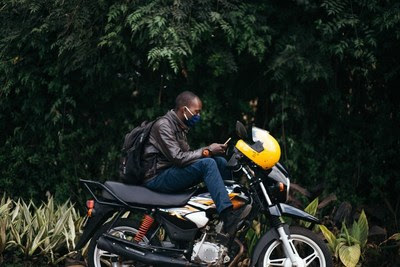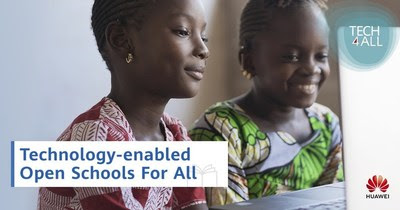Número de vendedores de imóveis de luxo aumenta globalmente; alguns compradores expressam FOMO (Strong Fear of Missing Out – Forte Medo de Perder Oportunidades); Sustentabilidade “criticamente importante” entre compradores ricos em todo o mundo
Relatório abrange dados dos afluentes na faixa de renda do topo 1-5% pesquisados em 20 países, representando uma população afluente de quase 32 milhões de famílias
NOVA YORK, Dec. 02, 2021 (GLOBE NEWSWIRE) — A Luxury Portfolio International® (LPI), a principal rede mundial de imobiliárias de imóveis de luxo, tem o prazer de compartilhar os resultados do seu Relatório Sobre Imóveis de Luxo de 2022 (SOLRE). O estudo inclui dados de indivíduos na faixa de renda do topo 1% a 5% em 20 países e aborda uma ampla gama de tópicos essenciais para o mercado de imóveis de luxo em todo o mundo.
Mais notavelmente, o relatório da LPI demonstra a continuidade das tendências dominantes relacionadas à compra de imóveis que tiveram início durante o terceiro trimestre de 2020 e continuaram durante todo o ano de 2021, mostrando que a demanda por imóveis de luxo permanece alta; os aumentos de preços devem continuar; a oferta permanece menor do que a demanda; o tempo no mercado de casas unifamiliares de luxo muitas vezes continua a “ser de apenas algumas horas”; e a sustentabilidade é “Extremamente Importante” (66%) na consideração de futuras compras de imóveis.
O estudo também mostra um aumento no número de vendas de imóveis residenciais de afluentes em todo o mundo; que entre os compradores de casas de luxo, a maioria (74%) com forte sensação de estabilidade econômica pessoal e ainda 75% estão significativamente preocupados que seu poder de compra discricionário possa mudar em breve.
E embora se espere que 2022 continue em um ritmo acelerado, há sinais de que o mercado de imóveis residenciais de luxo irá se estabilizar cada vez mais, fator essencial para que não haja complicações de um mercado superaquecido de longo prazo.
Com 75% dos compradores de casas de luxo escolhendo a próxima casa com sustentabilidade ambiental responsáveis pela ampla gama de resultados de um estudo de famílias ricas do mundo da Luxury Portfolio International® (LPI), 2021 entra para a história como um dos mais robustos mercados de imóveis residenciais de luxo.
“Depois de um ano recorde na área de imóveis de luxo, estamos prevendo que haverá um certo equilíbrio no mercado”, disse Mickey Alam Khan, Presidente da LPI. “É importante analisar o mercado de luxo ao longo de uma trajetória de vários anos, e levar em consideração que durante metade de 2020 o mercado esteve paralisado com a pandemia. O aquecimento do mercado teve início no final de 2020, continuou em 2021 e continuará com uma trajetória positiva em 2022. A diferença é que haverá mais imóveis de luxo no mercado em 2022 do que em 2021 e, embora o número de compradores de imóveis de luxo venha a ser menor, o mercado continuará a ser favorável ao vendedor. A loucura pandêmica que nos levou a um mercado superaquecido está sendo normalizada. A demanda permanecerá forte e um novo e saudável normal no setor imobiliário de luxo começará a surgir em 2022.”
A sustentabilidade, de acordo com o estudo, agora é um grande diferencial nas casas de luxo, e os compradores estão dispostos a pagar extra pelos recursos e comodidades que os preparem melhor para o futuro. 75% dos entrevistados observaram que escolheram a próxima casa com a sustentabilidade em mente e, pela primeira vez, 90% marcando “sim” na sustentabilidade como fator na escolha da casa no Próximo Capítulo da Vida. De acordo com o estudo, a compra de uma casa no “Próximo Capítulo na Vida” significa pessoas que se mudam para ficar mais perto da família, pela educação dos filhos, mudança de carreira e outros fatores atenuantes.
Dentre as pessoas interessadas em sustentabilidade como um fator importante para a compra da casa, 71% são da opinião que a casa comprada ficará para seus herdeiros. Além disso, com o aumento do interesse pela sustentabilidade, a qualidade do comprador aumenta, beneficiando o vendedor, pois o comprador deseja fazer transações mais cedo e com um orçamento relativamente maior.
FOMO, ou Fear of Missing Out (Forte Medo de Perder Oportunidades), é sensação de ansiedade que um evento emocionante ou interessante possa estar acontecendo em outro lugar, muitas vezes despertado por postagens nas redes sociais. Com um ano na casa e as manchetes exaltando o aquecimento do mercado, o FOMO passou a ser uma preocupação significativa para 26 por cento dos compradores de imóveis de luxo. O FOMO se manifesta de maneiras diferentes, primeiro como um verdadeiro momento de “perda do barco”, onde os preços ficam fora do alcance. Uma segunda preocupação – igualmente impactante – é organizar as finanças para grandes compras.
Embora a COVID-19 continue sendo uma preocupação significativa, o estudo revelou que o mercado já passou por grande parte dos seus efeitos. Isso em comparação com o ano passado, quando a principal tendência em imóveis de luxo era encontrar uma casa que acomodasse a família que trabalha em casa.
Dito isto, de acordo com o estudo, trabalhar em casa está desgastando uma grande parte dos compradores de casas de luxo. O estudo revelou que 27% dos compradores de imóveis de luxo citaram trabalhar em casa como uma “preocupação significativa”. O trabalho remoto, e a frustração e o estresse associados com o ficar em casa, continuam a ter um papel significativo no processo da decisão de compra.
Os compradores preocupados em remover a ênfase no ambiente de trabalho em casa passaram a incluir a diversão, como entretenimento em casa, vida noturna nas proximidades e comodidades que induzem ao relaxamento, como spa/hidromassagem, escala de coquetéis especiais, e salas especiais para mídia e jogos.
Os principais resultados da pesquisa incluem:
- Em todo o mundo, a classe afluente continua altamente interessada em comprar imóveis residenciais a qualquer preço, com um aumento de 33% em relação ao ano anterior. Não há dúvida de que 2021 terminará com mais compradores, configurando 2022 como mais um ano forte para imóveis de luxo.
- Mais de 14 milhões de famílias afluentes continuam interessadas em comprar uma casa, com 6,4 milhões na categoria de luxo. Outros 1,2 milhões de proprietários de imóveis de luxo estão interessados em vender seus imóveis nos próximos 3 anos, um aumento de 32% em relação ao ano passado. Sem dúvida, a apreciação do valor dos imóveis tem um papel fundamental nesta decisão.
- Em conjunto, esses fatores indicam que a estabilização dos preços e a normalização do mercado em todo o mundo devem ocorrer a partir de 2022. O que antes parecia ser um grande abismo entre o número de potenciais compradores e vendedores (10,3 milhões de compradores e 4 milhões de vendedores) está gradativamente rumo ao equilíbrio (6,4 milhões de compradores e 5,2 milhões de vendedores).
- A tendência global da demanda imobiliária residencial continuará a crescer em 2022. A porcentagem de indivíduos no mercado desejando comprar imóveis residenciais até o final de 2022 aumenta de 19% em 2021 para 39% em 2022 na Europa e de 30% em 2021 para 37% em 2022 na Ásia/Pacífico. 46% dos entrevistados do Oriente Médio, especificamente consumidores da Arábia Saudita e dos Emirados Árabes Unidos, têm maior interesse em adquirir imóveis residenciais, pois esses indivíduos continuam a diversificar suas participações. No geral, o rendimento global cai ligeiramente de 62% em 2021 para 60% em 2022.
- Proprietários de imóveis de luxo estão começando a vender. Com as novas construções sofrendo atrasos devido aos desafios com bens e serviços, há um interesse consistente nas casas existentes. No entanto, os proprietários não estavam necessariamente interessados em vender no ano passado e, consequentemente, a falta de estoque tem sido um importante impulsionador dos preços na maioria dos mercados de imóveis de luxo. Parece que agora os proprietários de imóveis de luxo estão convencidos no aquecimento do mercado e, por isso, o interesse em vender aumentou mais do que o dobro (de 11% para 28%). Na verdade, 71% dos proprietários acreditam que o valor do seu imóvel residencial aumentará este ano, criando um forte incentivo para as vendas. O proprietário médio de imóveis de luxo espera um aumento de aproximadamente 4–5 por cento em comparação com 3–4 por cento no ano passado.
- Psicologicamente, o mercado continua sendo favorável ao vendedor. Na prática, podemos esperar uma relação mais equilibrada entre compradores e vendedores nos próximos anos. Como os consumidores afluentes participam do mercado residencial, o número de compradores de imóveis residenciais de luxo caiu 58% em 2021 (de 34% para 20% do total de afluentes), enquanto, inversamente, neste equilíbrio delicado, o número de vendedores de imóveis de luxo aumentou 26% (de 13% para 16% do total de afluentes).
- Embora a fuga para as áreas fora dos grandes centros tenha sido uma das principais manchetes da COVID, a pesquisa revela que os imóveis residenciais de luxo dos grandes centros estão indo muito bem. Mais da metade dos compradores de imóveis de luxo em todo o mundo (55%) esperam comprar sua próxima residência em uma cidade e 77% estarão dentro da faixa de deslocamento. E, em particular, os compradores de imóveis de luxo da Ásia-Pacífico são significativamente mais propensos a comprar em centros de cidades do que os de outras partes do mundo.
- A popularidade das casas não geminadas aumenta além da América do Norte. A pesquisa revelou que a popularidade das casas não geminadas está crescendo em todo o mundo, com 40% dos compradores da Europa/Oriente Médio e 29% dos compradores da Ásia-Pacífico buscando o luxo dos espaços e privacidade adicionais. Ano após ano, a demanda por esse tipo de moradia está aumentando, pois, coletivamente, os espaços de convivência compartilhados estão se tornando menos atraentes para o comprador de imóveis de luxo. A América do Norte continua sendo o principal condutor da demanda por esse tipo de residência.
- Uma nova classe de comprador de imóvel de luxo de nível básico entra no mercado. Em todo o espectro de consumidores afluentes, há maior interesse na compra de imóveis com preço abaixo de US$ 1 milhão. Isso indica um ressurgimento de compradores de classe média alta que se atrasaram na compra devido à pandemia ou que agora estão prontos e têm o poder de compra. E isso está criando um aumento no número de compradores de imóveis de luxo de nível básico, de 39% para 44%, na faixa de US$ 1-1,9 milhões. Esse efeito democrático do luxo para muitos é mais pronunciado na América do Norte e menos na Ásia-Pacífico e Europa/Oriente Médio, onde a classe rica tende a ser de grupos relativamente pequenos de pessoas com concentrações muito altas de riqueza.
Para mais informações e acesso ao relatório, clique aqui: Relatório Sobre Imóveis de Luxo de 2022.
SOBRE A LUXURY PORTFOLIO INTERNATIONAL® (LPI)
A Luxury Portfolio International (luxuryportfolio.com) é a principal rede de corretoras e agentes de imóveis de luxo que oferece serviços incomparáveis de marketing e inteligência em todo o mundo. É a unidade de luxo da Leading Real Estate Companies of the World®, rede global das principais empresas imobiliárias independentes, com 550 empresas e 150.000 associados de vendas em 70 países. No ano passado, os membros da rede participaram de mais de 1,3 milhão de transações em todo o mundo. A LPI atrai um público global de visitantes de mais de 200 países/territórios todos os meses e comercializa mais de 50.000 casas de luxo por ano. Well Connected.™
Fonte: Luxury Portfolio International®
Foto deste comunicado disponível em https://www.globenewswire.com/
PDF está disponível em https://ml.globenewswire.com/
Contato: pr@luxuryportfolio.com




